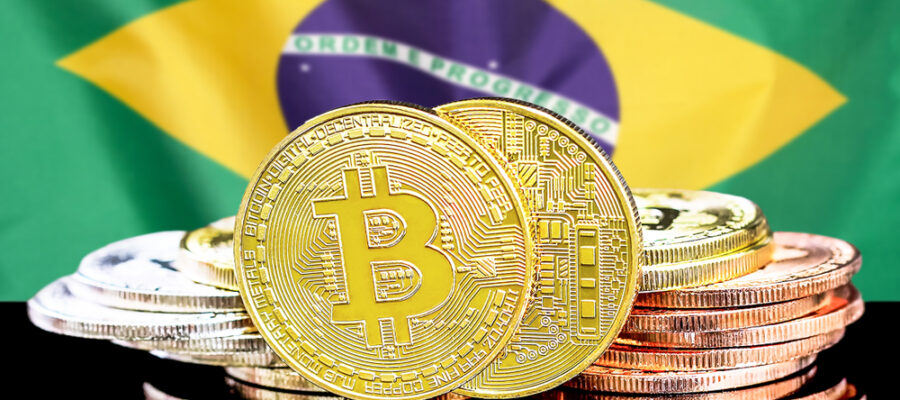The current economic crisis is forcing governments across the globe to take the necessary actions to avoid the crisis.
Brazil is no exception; like Argentina, Brazil is also facing a severe economic crisis. Unemployment is rising, inflation is peaking, and the government is running out of resources.
In this crucial time period, the President of Brazil has taken a brave step. Recently, Brazilian President Jair Bolsonaro passed a bill. That new Bill has authorized Bitcoin and other digital tokens as an accepted mode of payment.
This means that in Brazil, people can use Bitcoin as fiat currency, leading to further adoption of Bitcoin and crypto in the country.
The government is hopeful that this step will help Brazil attract the attention of foreign investors regarding making investments in the country.
The Bill also includes the government’s long plan to build the entire infrastructure for crypto-related activities and develop various blockchain platforms.
Moreover, this Bill also contains the information that Brazilian officials will soon formulate a committee responsible for developing the country’s first-ever digital token.
Brazilian congress has already passed the Bill; when the Brazilian President has signed it, it will be published soon.
According to Bill Only Digital Institutes Can use Cryptocurrencies as a Payment Method
The rough draft of the bill shows that the current legislation is only made for crypto platforms. This means Brazilian people are not allowed to use these cryptocurrencies as a mode of payment.
A look at the legal side of the current legislation shows that security has been the primary focus to deter any illegal activity.
All those service providers or digital platforms that will violate the payment-related principles will not only be punished with heavy penalties, but they will also spend 8 to 10 years in prison.
Moreover, the punishment will be much harder if digital crimes have been committed repeatedly.
The officials on the other side have said that if things have gone according to the plan, then a similar opportunity will be given to the Brazilian residents.
Transparency Has Been a Key Factor
Regardless of all the efforts, transparency remains the sole focus. This new bill will not be implemented within the current 180 days.
Moving forward, the country’s central bank and security and exchange commission will work together to monitor the development of such crypto-related platforms.
Government officials who will play the watchdog role regarding this project’s completion have yet to be finalized.
This legislation has also proposed that government officials from various departments ensure that all the work is being done in an exceptionally transparent way.
The same working group will be responsible for enforcing further legal amendments. The same group will directly report to the President regarding the successful completion of every project phase.
Brazil’s current government and government institutions are crypto-friendly, which is why the country has taken such an initiative.
The Greater Bitcoin Adoption is On Its Way
The government focused on crypto regulations and developed a plan to make Bitcoin and other cryptocurrencies the country’s payment method.
As high Bitcoin adoption is on its way. That situation is tricky because Brazil is among South America’s strong economies.
Experts do believe that Brazil has just laid the foundation for higher Bitcoin adoption, other South American countries will also do the same.
Using cryptocurrencies, especially Bitcoin, as a payment method will make the process smoother, more efficient, and easier to exercise. As inflation increases, South American countries will go for rapid crypto adoption.
Argentina is another South American country that has announced that the government will make Bitcoin a payment method in the future.
Despite the fact that this current plan to legalize cryptocurrency as the payment method in the country sounds good. But this will also lead to serious fraud and scam issues.
That is why a further detailed approach is needed to ensure the utmost transparency.
All trademarks, logos, and images displayed on this site belong to their respective owners and have been utilized under the Fair Use Act. The materials on this site should not be interpreted as financial advice. When we incorporate content from other sites, we ensure each author receives proper attribution by providing a link to the original content. This site might maintain financial affiliations with a selection of the brands and firms mentioned herein. As a result, we may receive compensation if our readers opt to click on these links within our content and subsequently register for the products or services on offer. However, we neither represent nor endorse these services, brands, or companies. Therefore, any disputes that may arise with the mentioned brands or companies need to be directly addressed with the respective parties involved. We urge our readers to exercise their own judgement when clicking on links within our content and ultimately signing up for any products or services. The responsibility lies solely with them. Please read our full disclaimer and terms of use policy here.

